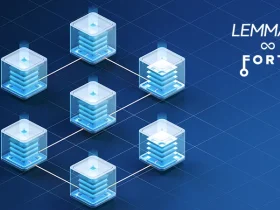MetaBlox Network, a Web3 project building a global Open-Roaming WiFi Network in a uniquely decentralized way, presented at the Wireless Broadband Alliance’s (WBA’s) Wireless Global Congress (WGC) in Amsterdam on October 19th, 2022. WGC is Europe’s preeminent WiFi conference, where new developments in wireless networking technologies are presented and discussed by industry leaders. This year, a main focus of the event was accelerating WiFi Open-Roaming adoption towards building one global WiFi network.
By generating a decentralized ID (DID) on the MetaBlox Network app, the presentation team established seamless Open-Roaming between two different networks, both adhering to WBA standards. MetaBlox network users can seamlessly switch between MetaBlox WiFi nodes and any of the other million+ nodes in WBA’s OpenRoaming alliance. The presentation also introduced the project’s advanced decentralized deployment model, which uses rewards-based incentivization to grow the MetaBlox network.
Also Read: Lukka Announces Expansion to Europe with HQ in Switzerland
“The explosion of Web3 in recent years has created a revolutionary opportunity to decentralize wireless networking”, said Jeffrey Manner, project lead for MetaBlox Network. “To do this, we are decentrally deploying a free, global, hotspot 2.0-based Open-Roaming network.”
The Wireless Broadband Alliance, which hosts the Wireless Global Congress, is an association of wireless networking and telecom companies dedicated to addressing issues and opportunities related to new WiFi technologies. WBA’s key programs include interoperability, policy and regulatory affairs, 5G, IoT, and next generation WiFi standards that will enable the creation of one global Open-Roaming network.
Convenient, seamless Open-Roaming WiFi is achieved on the MetaBlox Network via a passwordless authentication mechanism based on W3C’s DIDs and Verifiable Credentials (VCs) standards. The implementation of DID and VC standards also enables self-sovereign, privacy-protected authentication where users maintain full custody of their internet credentials and do not need to provide any personal information or enter login info to access the Open-Roaming network.

































